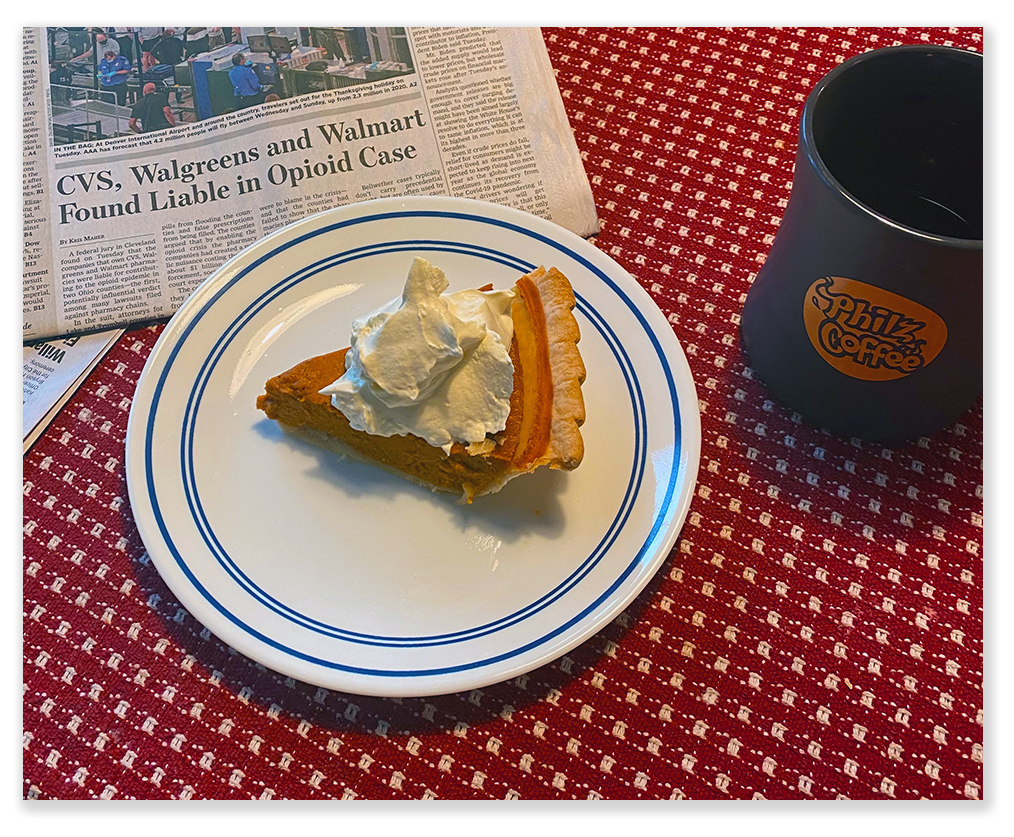We post news and comment on federal criminal justice issues, focused primarily on trial and post-conviction matters, legislative initiatives, and sentencing issues.

DESSERT
 It can be hard to pick which traditional Thanksgiving pie – pumpkin or apple – to eat as a finish to the feast. But a tough choice like this one usually ends with eating both, not a decision to just forget dessert altogether and go home.
It can be hard to pick which traditional Thanksgiving pie – pumpkin or apple – to eat as a finish to the feast. But a tough choice like this one usually ends with eating both, not a decision to just forget dessert altogether and go home.
The 7th Circuit had a problem last week deciding whether a prisoner appealing the denial of his 18 USC § 3582(c)(1)(A) compassionate release motion should be given a court-appointed attorney. Ultimately, the Circuit decided not to decide.
The 7th took only three pages to deny the appeal but needed another 43 pages to express the differing views of the three-judge panel.
The inmate had an appointed attorney in district court, but when the lawyer withdrew, the Circuit provisionally appointed a replacement to argue whether the appeals court had the authority under 18 USC § 3006A “to appoint counsel at public expense—whether in an individual case or through a general order—for defendants… seeking a reduction of their sentences under 18 USC 3582.”
The 7th has previously held that district courts are not required to appoint counsel in compassionate release proceedings, “but it does not prohibit them from doing so.”
The panel found that the district judge did not abuse his discretion in denying the compassionate release motion, so it did not reach the issue of whether it had the power to appoint counsel: “In Judge Lee’s view… the principle of judicial restraint counsels that we not reach the issue, because we can affirm the district court’s denial… on narrower grounds… Judge Hamilton has doubts about whether the panel should address the merits, but explains why he believes the language of the Criminal Justice Act gives federal courts discretion to make such appointments… Judge Scudder believes it appropriate to resolve the merits question, and he would hold that the plain language of § 3006A does not authorize appointments of counsel in § 3582(c) proceedings.”
 One judge wanted pumpkin pie, one wanted apple pie, and one wanted both. So the panel decided on no dessert at all. However, with inmates frequently asking courts to appoint counsel, it is worthwhile noting that serious legal questions may make appointment impossible.
One judge wanted pumpkin pie, one wanted apple pie, and one wanted both. So the panel decided on no dessert at all. However, with inmates frequently asking courts to appoint counsel, it is worthwhile noting that serious legal questions may make appointment impossible.
United States v. Bonds, Case No. 24-1576, 2024 U.S.App. LEXIS 29690 (7th Cir., November 21, 2024)
– Thomas L. Root

